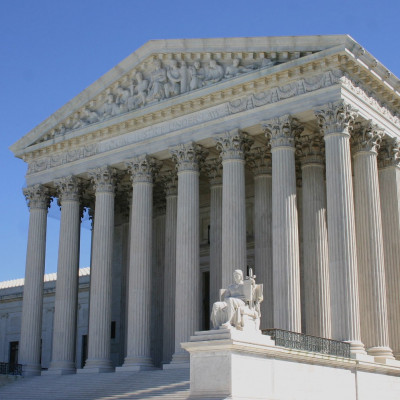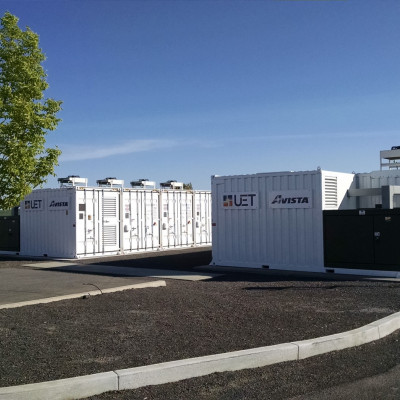December 31, 2022
December 2022 at Policy Integrity
- Revesz to Lead OIRA; Ünel to Direct Policy Integrity
- What the Major Questions Doctrine Is—and Isn’t
- New Brief: Best Practices for Energy Substitution Analysis
- Shaping Connecticut’s Energy Storage Strategy
- A Path Toward Texas Grid Reliability
- More From December
-

Revesz to Lead OIRA; Ünel to Direct Policy Integrity
The U.S. Senate confirmed our long-time director Richard Revesz to lead the Office of Information and Regulatory Affairs within the U.S Office of Management and Budget. Revesz, one of the nation’s leading voices in environmental and regulatory policy, took a leave of absence from the institute upon being nominated.
Burçin Ünel will serve as Executive Director of the Institute for Policy Integrity beginning on January 1, 2023. Dr. Ünel, who had been the institute’s Energy Policy Director, is an expert in utility regulation, and environmental and energy policy. She recently returned to Policy Integrity after serving as a Senior Fellow at the U.S. Department of Energy, where she focused on federal clean energy legislation, clean energy deployment, and infrastructure planning.
-

What the Major Questions Doctrine Is—and Isn’t
In West Virginia v. EPA, the Supreme Court relied on the “major questions doctrine” for the first time in a majority opinion to hold that a federal agency lacked authority to issue a regulation. In light of the doctrine’s new importance, our forthcoming article outlines the two-pronged framework West Virginia provides to guide lower courts and litigants in applying the doctrine. The paper also clarifies what the major questions doctrine is not, rebutting arguments that the doctrine is triggered whenever an agency’s action raises a question of economic and political significance or that the doctrine operates as a clear-statement rule. Applying this framework in a policy brief, we argue that the Federal Energy Regulatory Commission’s proposed rule on transmission planning does not trigger the major questions doctrine because it is neither unheralded nor transformative. In a working paper examining the “unheralded” prong of the test, we show how agencies can protect regulations from legal risk by better chronicling regulatory antecedents.
-

New Brief: Best Practices for Energy Substitution Analysis
In recent years, numerous federal agencies overseeing oil and gas production or infrastructure have made a controversial claim: that projects locking in fossil fuels over the long term will either decrease or minimally affect total greenhouse gas emissions. But agencies have often reached this counter-intuitive conclusion based on flawed consideration of energy substitution—that is, their analysis of the most likely energy alternatives. Our new report identifies some of the recurring problems with agency analysis of energy substitution and offers best practices to apply moving forward. In particular, the report recommends that agencies recognize that energy consumption is not fixed but rather affected by changes in supply. The report also recommends that agencies incorporate a realistic assessment of long-term trends in the energy mix rather than assume long-term, global reliance on fossil fuels.
-

Shaping Connecticut’s Energy Storage Strategy
Energy storage can play an important role in a transition to clean energy, but only if it’s deployed within an effective policy framework. Emissions reductions are possible if the storage is charged with low-emissions sources and displaces high-emissions sources when discharged. But ill-timed charging and discharging can increase emissions. That is why, together with WattTime, we urged the Connecticut Public Utility Regulatory Authority (PURA) to ensure that the Connecticut Green Bank’s energy storage program reduces emissions as much as possible. PURA adopted our recommendations to target the energy storage incentives to areas with the highest differential between the highest and lowest marginal emissions rates so batteries could ultimately lead to reductions in emissions. In addition, PURA directed the Connecticut Green Bank to review our comments when setting the scope of the program's marketing plan.
-

A Path Toward Texas Grid Reliability
After Texas’s infamous power outages during Winter Storm Uri in 2021, the Texas Public Utility Commission (PUCT) has prioritized new efforts to ensure grid reliability. The Commission recently requested comments on the performance of various reliability mechanisms as part of its ongoing redesign of wholesale electricity markets. In response, we recommended ways that the PUCT can achieve its reliability goals in a manner that accords with economic principles and ensures just and reasonable rates for consumers. Our comments and recent blog post caution the PUCT to consider whether additional generation is needed or whether the issues can be addressed simply through improved resilience for existing generation. We then explain why any new reliability mechanism should compensate both dispatchable and non-dispatchable resources according to their reliability value; include an efficient penalty structure for non-performance of generation units; reduce uncertainty for market participants; and mitigate the exercise of market power.
-
More From December
- Senator Cory Booker’s office issued a letter to the Consumer Product Safety Commission urging them to implement our recommendations on promoting safe stoves in homes.
- An op-ed by Peter Howard and Max Sarinsky explains why the recent update to federal climate damage estimates is good for reasoned policy making.
- We submitted comments to EPA on how to prioritize projects to support with its $27 billion greenhouse gas reduction fund.
- Our new brief summarizes the key takeaways from our Advancing Energy Justice conference earlier this year.
- We released a working paper examining the impacts of the Clean Air Act’s New Source Review grandfathering provisions, finding that additional sulfur dioxide emissions associated with these provisions alone caused annual costs of up to $65 billion.
